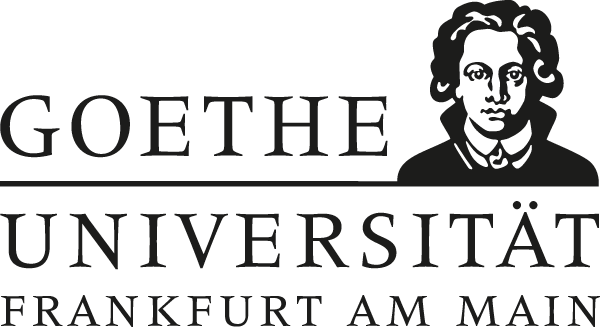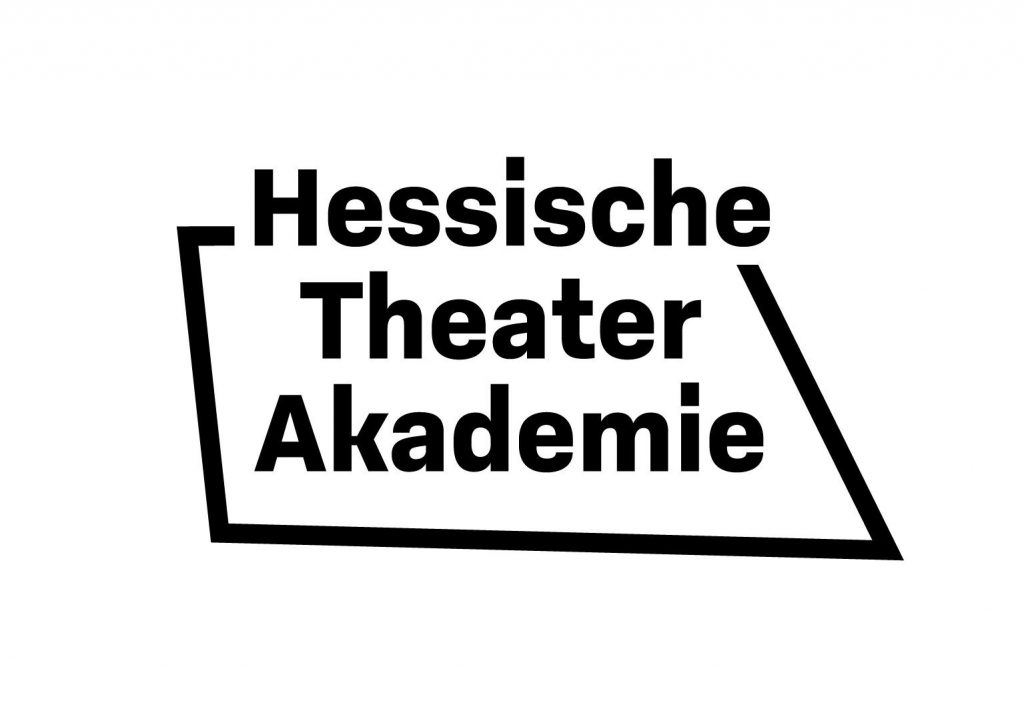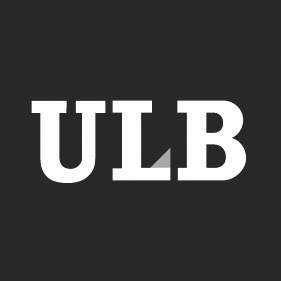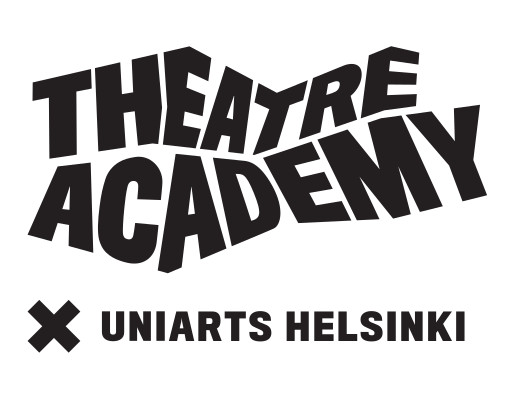 ;
; Study Programmes
The Theatre Studies department at the Institute for Theatre, Film and Media Studies at the Goethe University offers two M.A. programmes in Dramaturgy in cooperation with the Hessian Theatre Acadamy (HTA):
M.A. Dramaturgy
The M.A. Dramaturgy was founded in 2002 and offers a full university course in Frankfurt that combines theory and practice.
M.A. CDPR
The international study programme Comparative Dramaturgy and Performance Research offers studying both at Goethe University in Frankfurt and at one of currently four international higher education institutions and leads to a Double Degree.

Dramaturgy as Political Practice
We understand “Dramaturgy” as a political practice. Dramaturgy can open the creative process – the artwork in progress – where it threatens to refuse the demands of the constitutively excluded Others. Dramaturgy remembers, that conflict is key for every theatre and opposes its ‘extorted reconciliation’ (Adorno). With dramaturgy, we can negotiate the question of who is allowed to take up space and perform on stage and who isn’t again and again. The vanishing point of every political dramaturgy is that impossible theatre that negates the present as the realm of possibilities: In the interest of a different theatre or perhaps of something completely different from what we call theatre today.

Zurückgreifen. Ausbauen. Korrigieren! Scientific-artistic symposium/masterclass on the art of recording performing arts
Thursday, 12 February 2026, 2 p.m., to Friday, 13 February 2026, 8 p.m. in the Schopenhauer Studio of the Johann Christoph Senckenberg University Library
The event invites HTA students and experts in documentation, archiving, presentation and artistic transmission of theatre works to discuss the art of recording theatre, dance and performance.
Participation is free of charge, subject to availability. Please register by 5 February 2026 at:
Kunst.der.Aufzeichnung@gmx.de
For more information about the programme and participants, please visit:
https://www.performing-arts.eu/de/about/projects/symposium-masterclass-kunst-der-aufzeichnung/

Digital Information Event | MA Dramaturgy, MA CDPR
On 22. April 2026, a digital information event on the two degree programmes MA Dramaturgy and MA Comparative Dramaturgy and Performance Research will take place for those interested in the degree programme from 2.00 – 3.00 pm.
We ask for mandatory registration by 17 April 2026 at: dramaturgie@tfm.uni-frankfurt.de/
Hölderlin Lectures 2025/26

Tuesday, 3 February 2026, 6 p.m.
Samuel Weber (Paris)
Becoming at home in the uncanny?
Campus Westend, IG Farben Building, Room 1.411
Martin Heidegger attempted twice to explore the question of the uncanny on the basis of a reading of the first stasimon from Sophocles’ Antigone (vv. 332–383, “The uncanny is manifold…”) to explore the question of the uncanny: first in his 1935 lecture, published in 1953 as Introduction to Metaphysics, and a second time in his 1942 lecture on Hölderlin’s poem “Der Ister.” A comparison of the two interpretations confirms not only the claimed ‘multiplicity’ of the uncanny, but above all Heidegger’s effort to interpret this multiplicity more precisely.
In 1935, Heidegger interpreted the choir’s closing words as a ‘defence’ against the uncanny, while in 1942 he described them as ‘the highest form of poetry’. This lecture examines how this radical reversal of his earlier interpretation came about and what it means. Central to this is the relationship between the uncanny and poetry, which Heidegger defines here as ‘that which is to be written’. The question is whether the experience of the uncanny as something ‘to be poeticised’ can – or even must – be adequately captured by Heidegger’s formula of ‘becoming at home in the uncanny.’ Against the backdrop of the historical circumstances in which Heidegger developed this formula, it can be assumed that this question is by no means merely academic in nature.
Samuel Weber studied under Paul de Man and Theodor Adorno. He taught comparative literature at the Free University of Berlin, Johns Hopkins, UCLA and Northwestern. Selected publications: Theatricality as Medium (2004), Benjamin’s -abilities (2008), Singularity: Politics and Poetics (2021), Preexisting Conditions: Recounting the Plague (2022), Le Saut (2025).
Tuesday, 12 May 2026, 6 p.m.
Maaike Bleeker (Utrecht)
Plotting as Undisciplinary Thinking Through Making
Westend Campus, IG Farben Building, Room 1.411
This lecture proposes a reconsideration of the dramaturgical notion of the plot inspired by Silvia Wynter and Patricia de Vries. Wynter discusses the plot and plotting in relation to the plantation as two distinct story worlds with distinct but intertwined value systems. De Vries extends Wynter’s understanding of plot towards artistic forms of making, crafting, imagining, doing, and thinking. The plot, in her understanding, signifies practices where other values are acted upon, constituted, and grounded in space, and where dominant social orders and values are challenged and evaded. Bleeker’s reconsiderations of the plot and plotting are part of her ongoing collaboration with theatre maker Julian Hetzel, as they attempt to trace how artistic thinking unfolds in creative practice. Plotting as a praxis that interlaces the material and the metaphoric provides a perspective on how such thinking through making takes shape in material arrangements that intervene in and extend into real-world situations.
Maaike Bleeker is a professor of theater studies and head of the School of Media and Culture Studies at Utrecht University. Since 1991, she has also worked as a dance and theater dramaturg. She is the author of Visuality in the Theatre: The Locus of Looking (Performance Interventions) (2008); Transmission in Motion: The Technologizing of Dance (2016); Doing Dramaturgies: Thinking Through Practice (New Dramaturgies) (2023).
Tuesday, 30 June 2026, 6 p.m.
Susan Manning (Evanston)
Ausdruckstanz and National Socialism: Family History as Research Method
Westend Campus, IG Farben Building, Room 1.411
How does a performance historian’s lived experience inform her research? This lecture on the entanglement of Ausdruckstanz and National Socialism reflects on how family history can illuminate historiographic puzzles. As the daughter of a German-Jewish émigré, Susan Manning found that her father’s confusion of history and memory helped her understand the collaboration of German modern dancers with the Nazi regime.
Susan Manning is Bergen Evans Professor in the Humanities at Northwestern University. She is the author of Ecstasy and the Demon: The Dances of Mary Wigman (1993, 2nd ed 2006); Modern Dance, Negro Dance: Race in Motion (2004); Danses noires/blanche Amèrique (2008); and Dancing on the Fault Lines of History: Selected Essays (2025).
Past Events
Jour Fixe with Sahar Rahimi and Mark Schröppel, directors of the Brecht Festival Augsburg
The Theatre Studies Department at the Institute for TFM invited to its jour fixe on 10 December 2025 at 7 p.m. on the rehearsal stage. Guests were the new directors of the Brecht Festival Augsburg (2026-2028), directors and performers Sahar Rahimi and Mark Schröppel.
Both are graduates of the ATW in Giessen. Sahar Rahimi was co-founder of the highly successful performance group Monster Truck, while Mark Schröppel was co-founder of the performance group SKART and SKART & Masters of the Universe. In their concept for the Brecht Festival, which is held every three years, they explain why they see Brecht’s work as the starting point for contemporary inclusive theatre: “For us, inclusion means recognising the potential and magical moments that we as a society and as institutions miss out on when we do not listen to their previously ignored perspectives on the world. Our approach represents an attempt to unite minorities with majorities, subculture with high culture, progressive with conservative, old with young, people with and without disabilities in the spirit of an accessible artistic experiment. We want to actively counteract the current processes of social division.” On 10 December, both published their programme for the 2026 Brecht Festival. We talked to them about this, about Brecht, the festival and their work at the Jour fixe. As usual, with pretzels, wine and non-alcoholic drinks.
Lecture hall building Bockenheim, Mertonstr. 17-21, room D 108. Admission free.
Jour Fixe with Kattrin Deufert of deufert & plischke
The Theatre Studies Department at the Institute for TFM invited to a jour fixe and preliminary discussion of the scenic project with deufert & plischke on 5 November 2025 at 6 p.m. in room 1.411. Kattrin Deufert was our guest.
As part of the annual project ‘Social-Ecological Transformation of City Theatre,’ the performance duo deufert&plischke will offer a scenic project entitled ‘Just in Time – Letters to a Still Unknown Theatre’ during the winter semester. It builds on the duo’s community project, which originally began with the aim of gathering as many voices from around the world as possible to tell the story of people’s relationship to dance. In workshops and dance balls, letters to dance are written and the favourite movements of city dwellers are performed. Now the two will continue this project with a new focus at the institute: the central question is what theatre can be in the future, what spaces and what people it needs for this. On 5 November, Kattrin Deufert presented the duo’s work at the theatre studies jour fixe and discussed the joint scenic project with all interested parties.
deufert&plischke (aka Kattrin Deufert and Thomas Plischke) have been working together since 2001, creating works in the fields of dance, theatre, film, photography and music. Their projects emerge at the intersections of these disciplines – and above all in the spaces between social interactions. Whether as a duo, within a family, in exchange with the audience of their performances or in collaboration with an entire village: their artistic practice is rooted in encounters, relationships and collective experiences. The spinnereischwelm – their studio in North Rhine-Westphalia – serves as the starting point for their international projects, which have already been realised in cities such as Los Angeles, New York, Tel Aviv, Alexandria, Moscow, Vienna, Riyadh, Istanbul, Helsinki, Oulu, Montreal, Rio de Janeiro, Curitiba, Copenhagen, Singapore, Johannesburg, Warsaw and Madrid.
Hölderlin Lecture by Peter Fenves (Evanston)
Tuesday, 11 November 2025, 6 p.m.
On a Second Program from the Coming Philosophy: Benjamin, Truth, and Epistemic Diversity
Westend Campus, IG Farben Building, Room 1.411
The starting point for this presentation lies in Benjamin’s attempt to write a habilitation-thesis on the theme of “language and logic.” The original framework for the pursuit of this theme collapsed when Benjamin re-read Heidegger’s habilitation-thesis. Starting anew, Benjamin conceives a new framework that revolves around a formal distinction between knowing (Wissen) and cognition (Erkenntnis): whereas the latter, associated with logic, is subject to critique, the former, correspondingly associated with lan- guage, is to be prompted in the diversity of its equally valid kinds. The language-and-logic theme thus develops into a philosophical program that, in contrast to the earlier “Über das Programm der kommenden Philosophie,” is principally concerned with a certain concept of truth. Prompted by the prospect of habilitating in Heidelberg, Benjamin’s second attempt to elaborate this theme culminates in the claim that there must be a “pure type”—the term derives from Max Weber—of what he calls “theoretical knowing.” Prompted, in turn, by Max Scheler’s Cologne-based program for an anti-positivist sociology of knowledge, Benjamin specifies the core “kinds of knowing” and adds a hybrid kind, which represents a transformation of “theoretical knowing”— and with it, the very idea of philosophy. The presentation concludes with a description of why and how the second program for the coming philosophy goes underground, so much so that at the end of the habilitation-thesis Benjamin eventually writes, a kind of knowing that proudly denies its kind-wise diversity (“bloßes Wissen”) forms the infrastructure of hell.
Peter Fenves is the author of several books, including The Messianic Reduction, and co-editor of two Benjamin translations, Toward the Critique of Violence and On Goethe.
Social Media
Follow us on our Instagram page and receive
exclusive insights and exciting announcements about the two
Master’s programmes in Dramaturgy and CDPR:
Jour Fixe
The Jour fixe invites students of the Hessen Theatre Academy to take part in discussions with guests from theatre and cultural policy on the rehearsal stage of the Institute for TFM in an informal context.In the past years with: Beate Heine, Amelie Deuflhard, Martine Dennewald, Marcus Droß, Tim Etchells, Sigrid Gareis, Heiner Goebbels, Kirsten Haß, Carl Hegemann, Katja Herlemann, Stefan Hilterhaus, Marta Keil, Susanne Kennedy, Burkhard Kosminski, Elisa Liepsch and Julian Warner, Matthias Lilienthal, Jan Linders, Stefanie Lorey, Florian Malzacher, Bettina Masuch, Barbara Mundel, the production office „Ehrliche Arbeit“, Milo Rau, She She Pop, Carena Schlewitt and André Schallenberg, Jan Philipp Stange, Julia Stoschek, Tom Stromberg, Hasko Weber and many more. On irregular Wednesdays at 19 o’clock (c.t.). Le Studio. Rehearsal stage of the Theatre Studies department (Probebühne der Theaterwissenschaft), Jügelhaus, building section D, room 108, 1. Floor, Campus Bockenheim.
Scenic performance projects
The Frankfurt Theatre Studies programme puts great emphasis on integrating experience with artistic practice into the programme, no matter whether students aim for a career on stage or behind the scenes later in life. Students regularly work with professional artists within the framework of scenic performance projects, theory-practice-project workshops and weekend-seminars on the rehearsal stage of the Institute. In past years with: Robin Arthur, Sebastian Blasius, Laurent Chétouane, Prof. Dr. Katrin Deufert und Thomas Plischke, Tim Etschells, Manuela Infante, Jason Jacobs, Rupert Jaud, John Jesurun, Katharina Kellermann, Chris Kondek, Prof. Stefanie Lorey, Lina Majdalanie, Uwe Mengel, Gerardo Naumann, Boris Nikitin, Prof. Mike Pearson, Katharina Pelosi, redpark, Felix Rothenhäusler, Diego Rotman, Tucké Royale, Johannes Schmit, Jan-Philipp Stange, Katharina Stephan, Tore Vagn Lid, Camila Vetters, Rosa Wernecke, Ivna Zić.
Research-Colloquium and Masterclass
The Theatre Studies Department highly values the connection of teaching and research. We are committed to teaching our research. That is why each semester, we offer a Research-Colloquium for Master-students, where we discuss current questions in research as well as the final projects of students. Furthermore, we regularly hold Master Classes. They give students the opportunity to present and discuss their own academic work within the framework of a public event with international academic and theatre practitioner guests. Past events have concerned themselves with these topics: „Critical Theatre Research“ (Winter 23/24), “[Bühnen]Besetzungen” (Winter 20/21), “Sound Knowledge: Exploring the Dramaturgies, Philosophies, and Politics of Listening” (Winter 19/20), „Implosion of the municipal theatre? History, Analysis, Perspective“ (Winter 18/19), „Theatre and Identity Politics“ (Winter 17/18), „Theatre of the A-Human“ (Winter 15/16), Kafka and Theatre“ (Winter 13/14). Presentations, contributions and results are documented here:
https://blog.studiumdigitale.uni-frankfurt.de/theater/
http://www.theater-wissenschaft.de/category/thewis/ausgabe-2017-kafka-und-theater/
Artistic-academic Symposium
‘Plus d’un théâtre”: With a recurring reference to Derrida’s notion about how we are entangled in “plus d’une langue”, the aim of the symposium in february 2025 was to discuss how theatre could be thought of: as more than the theatre of a certain form, but also as one that is actually no longer theatre and thus transcends set definitions.
We, a group of former and current doctoral students and employees in theatre studies and scenography, invited you to think about where theatre, performance and dance enable transitions into realities and at the same time reach beyond these realities. Contributions from Claudia Bosse, Martina Groß, Günther Heeg, Rembert Hüser, Judith Kasper, Liz Kohlhaas, Krassimira Kruschkova, André Schallenberg, Gerald Siegmund and a performance by Boris Nikitin thematised where and how scenic attempts, concepts and ideas negotiate the limits of representability and thus themselves move at these limits, come close to them, touch them and let them fall away again.
The symposium ‘Plus d’un théâtre – Potentialitäten eines eingreifenden Denkens’ took place on 6 and 7 February 2025 at Frankfurt LAB.
Coaching
Dramaturgy and CDPR students will be supported in their artistic projects by choaches who come from the field of dramaturgical practice. That’s why we work with practitioners from municipal and state theatres as well as from the Free Scene. In the past few semesters, students worked with: Björn Auftrag, Laurent Chétouane, Marcus Dross, Martin Hammer, Maria Magdalena Ludewig (T), Katja Leclerc, Kris Merken, Malin Nagel and Jonas Zipf.
Friedrich Hölderlin Guest Lectures in General and Comparative Theatre Studies
Within the framework of this lecture series we will situate Theatre Studies in the context of those philosophical and political questions that are always at play when thinking about theatre, but that are often obscured. Next to questions that strictly concern theatre, the talks of our guests will also deal themselves with questions on theatre theory and theory referring to theatre. These talks deal with theatre in all its four meanings, in accordance with the Leipzig discourse on theatricality: Theatre, anti-theatre, theatre in a wider sense and not-theatre. Our extended understanding of “Theatre“ is situated closely to newer findings in the field of Theatre Studies: We want to establish a notion of Theatre Studies that places it outside of the national-philological explanation of 1930s Germany as well as outside of the limitation of the staged performance, suggested by Max Hermann, the founder of Theatre Studies in the German-speaking context, at the turn of the 19th century. Theatre is more than the ephemeral product of an evening, but is also process, interaction, action and especially critical practice.
By choosing Hölderlin as the namesake for this lecture series, we seek to remember that Hölderlin, who lived in Frankfurt for some time, wasn’t just a great poet, but also a great theatre theoretician and dramaturgical thinker, who opened up the thinking of modern theatre with his Sophocles translations, fragments of writing and comments on “Ödipus” and “Antigone”. This is especially true when considering the ineluctable condition of “mediation”.
Recordings of past lectures:
https://blog.studiumdigitale.uni-frankfurt.de/theater/blog/category/hoelderlin-gastvortraege/

Digital Archive
With the project “Digital Theatre Research” the institute is pioneering in the field of digital documentation, digital mediation and experimentation with theater.
At “Digital Theatre Research” documentations of conferences, lectures, symposia and other events will be uploaded. On the “Digital Stage” you will find video experiments, tutorials and documentations of student projects. In the “Laboratory Video⇄Stage” various workshops with specialists from the interface of video and theatre took and take place.






